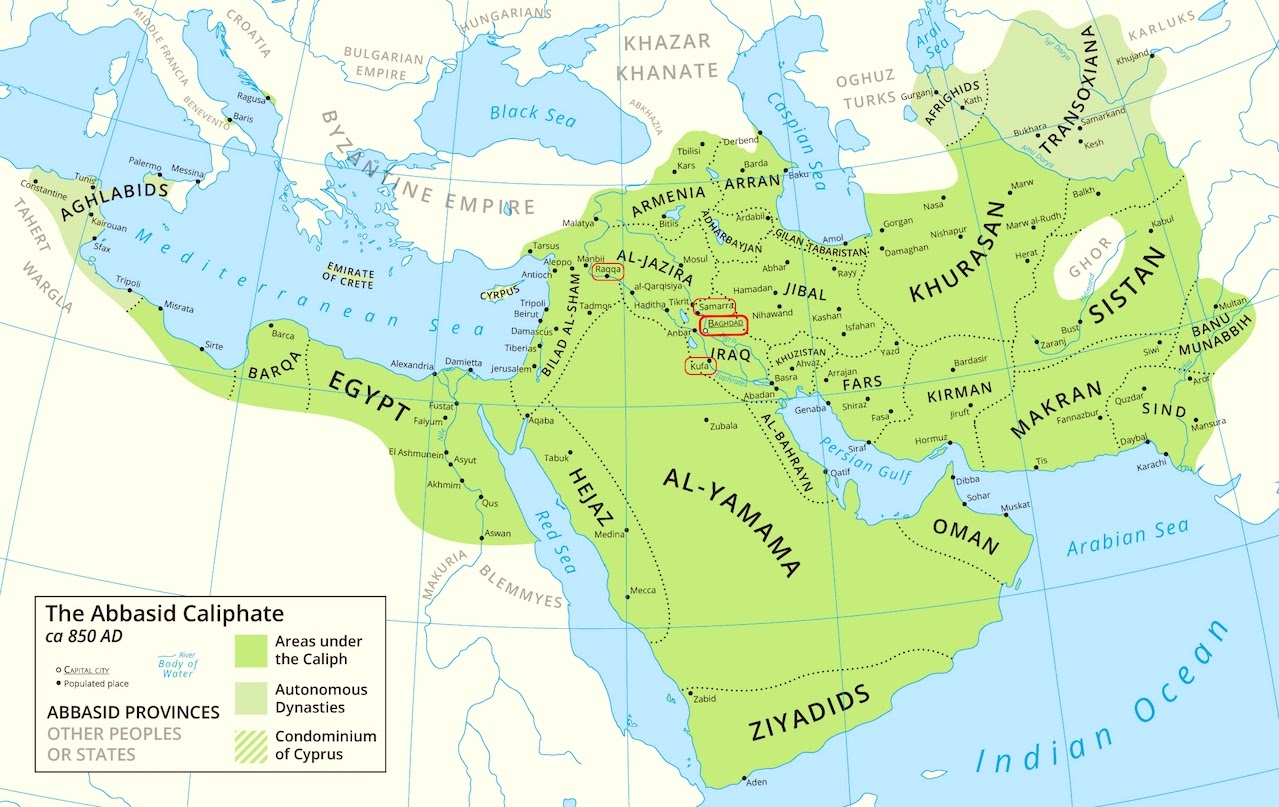Abbasid Caliphate
The Abbasid Caliphate was a powerful Islamic empire that existed from 750 to 1258 CE. It succeeded the Umayyad Caliphate and was founded by Abu al-Abbas as-Saffah in 750 CE, following a revolt against Umayyad rule. The Abbasids established their capital at Baghdad, which became a center of learning, trade, and culture.
Under the Abbasid Caliphate, Islam experienced a period of cultural and scientific advancement known as the Islamic Golden Age. Many important works of science, philosophy, medicine, and literature were translated into Arabic and contributed to the development of Islamic scholarship. The caliphs also sponsored the construction of magnificent buildings, including mosques and palaces, which reflected the empire's wealth and power.
The Abbasid Caliphate was also known for its military prowess, as it successfully fought off invasions from various foreign powers, including the Byzantine Empire, the Tang Dynasty of China, and the Viking raids.
However, the caliphate declined over time due to political instability, corruption, and economic decline. The empire was eventually weakened by external invasions, such as those by the Mongols, which culminated in the sack of Baghdad in 1258 CE and the end of the Abbasid Caliphate.
During the early period of the Abbasid Caliphate, the caliphs maintained a strong centralized government and a sophisticated administration system. They relied on the support of various ethnic groups and religious sects, such as the Shia Muslims and the non-Arab converts to Islam, in order to maintain their power.
One of the most famous caliphs of the Abbasid Caliphate was Harun al-Rashid (r. 786-809 CE), who is known for his patronage of the arts and literature. His court was home to many prominent scholars and poets, including the famous poet Abu Nuwas.
The Abbasid Caliphate also saw the emergence of important Islamic dynasties, such as the Fatimids in North Africa and the Aghlabids in Tunisia. These dynasties had varying degrees of autonomy from the Abbasid Caliphate and helped spread Islamic culture and influence throughout the Mediterranean world.
Despite its decline, the Abbasid Caliphate left a lasting legacy on Islamic culture and history. Its contributions to the fields of science, medicine, and philosophy continue to be studied and admired today, and its architecture and art continue to inspire artists and scholars.

